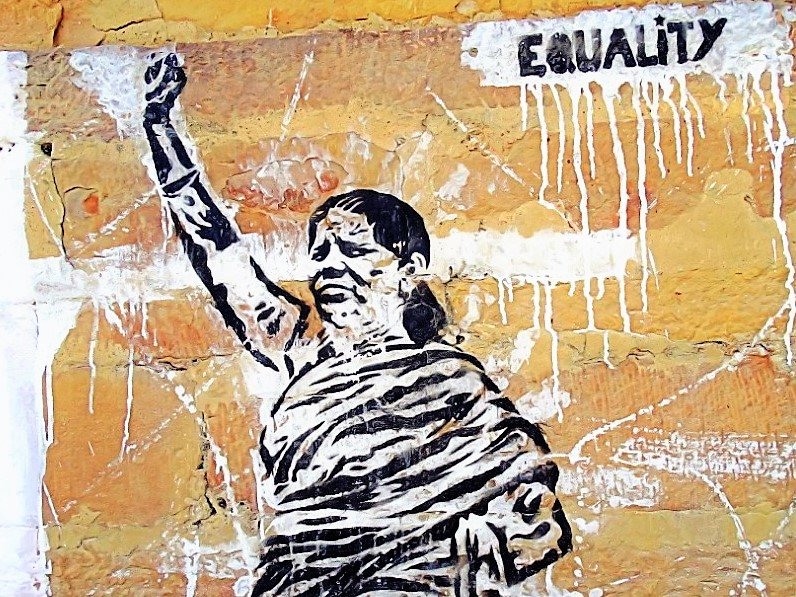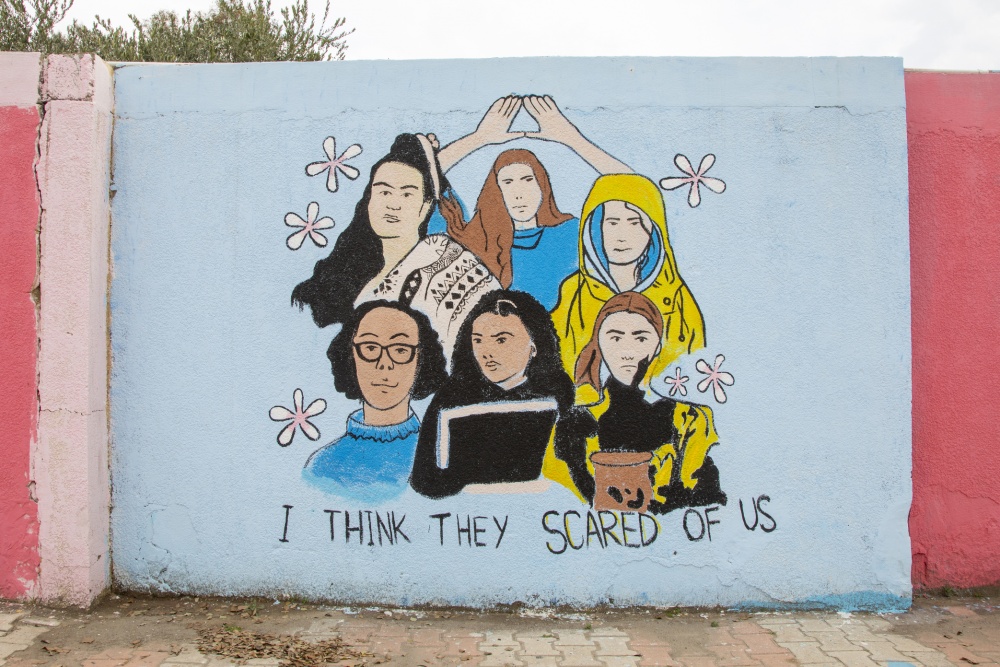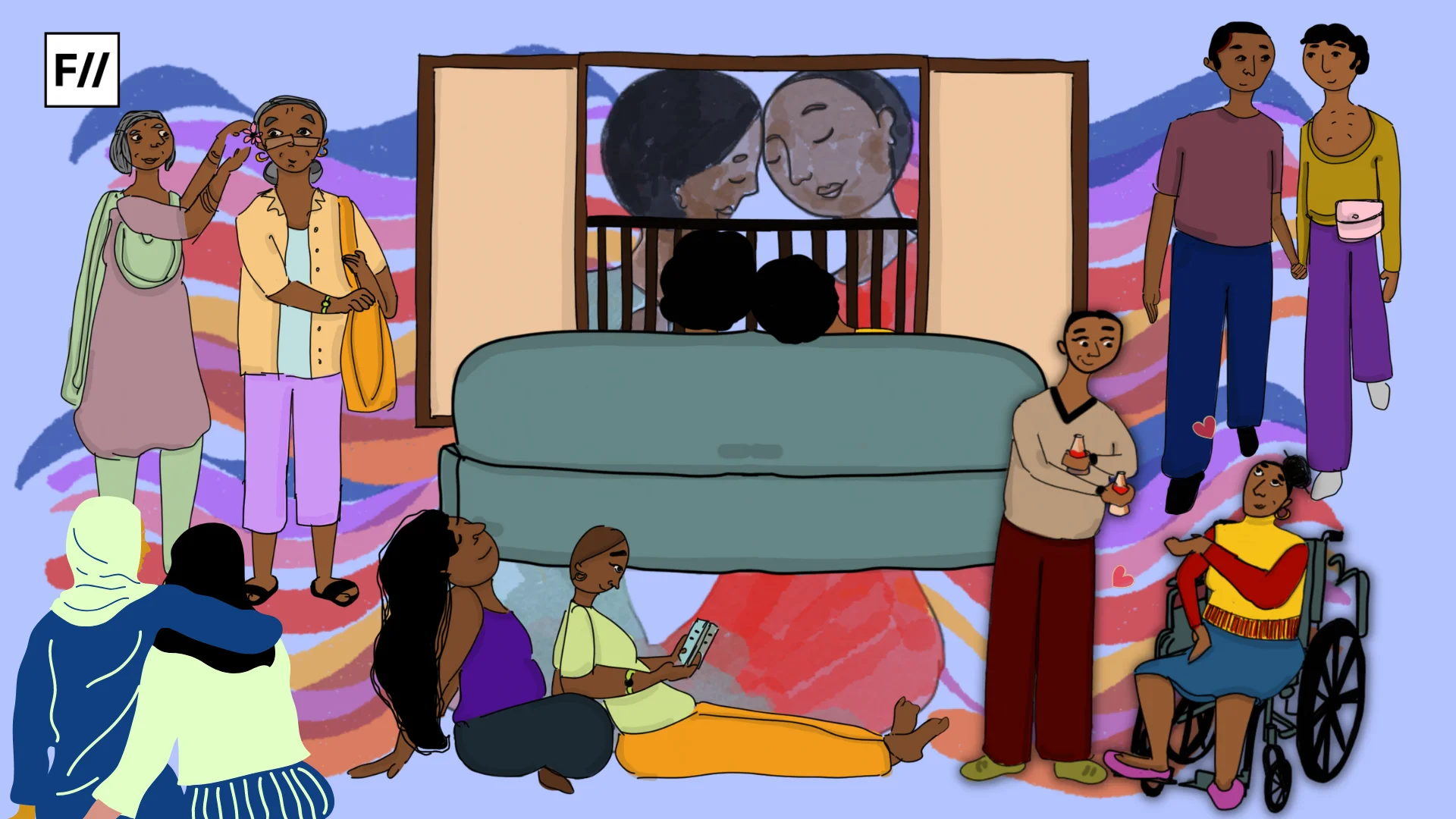If we trace the trajectory of moral policing in India, the most recurring area of contestation is sexuality. Controlling the sexuality, especially of women and sexual minorities takes center stage since expressions of non-normative sexualities and desires are considered as ‘western’ imports. Women are always made to conform to family, society and community expectations. The family becomes the site where the material body is disciplined and socialised. Cultural assumptions of womanhood are crudely reproduced through gendered stipulations and the female body becomes a site for social control.
Since time immemorial, there have been anxieties around women’s bodies targeted as metaphors for nation, family or community. The gendered reproduction of the relationship between land/caste group and women’s bodies are all used as controlling regimes. A territorial entitlement is exhibited by articulating complex and contested inter-relationships between women’s bodies on one hand and the community or family on another. Women’s bodies not only represent honour, but are also symbolic markers of the boundary between ‘us’ and ‘them’.

While with feminist interventions, women are trying to liberate themselves from the clutches of these inherited inhibitions of ‘culture’. This altered attitude of women towards the self-abnegating notion of their sexuality imposed upon them has also given rise to the moral police vandalizing places that threaten their sexual autonomy. Among the many such sites, the social control exacerbated by family is a complex affair that displays a dyadic relation between the political construction of women’s bodies controlled by the norms and gendered social order and the supposedly personal space of family.
Regulatory norms are set into play to confine women’s sexuality within the framework of hetero-normativity i.e. relationships which are monogamous, within marriage and only with the opposite sex. Sexuality is often experienced through the physicality of our bodies. Anthropologist Carole S. Vance, who writes about gender, sexuality and the body states that sex is a construction articulated through economic, social and political structures of the material world.
The conceptions of exotic, mysterious and sensual assigned to women’s bodies are oppressive and restrictive which limit female sexuality to seek safety within a heterosexual marital construct rather than autonomous sexual pleasure. The dialectic approach embedded in patriarchy views the female body as a material object located in nature with a mystified character but subject to forces of social control and regulation.
When expedient, women’s bodies are glorified as bearers of family honour and name, and sometimes the same body is projected as shameful, vexatious, fearful and disgusting. Women have constantly struggled to maintain this ‘ideal’ image and project themselves as ‘good women’ or avoid any likely portrayal of a ‘bad woman’ who is deemed as promiscuous and sexually wild
Furthermore, religious fundamentalism and masculine nationalism are incompatible with notions of female sexuality imagined as a luxury for self-indulgence. This rhetoric prevalent in rigid patriarchal structures like the family are threats to women’s sexual and reproductive health, devoiding them of asserting control over their bodies and seeking bodily autonomy. Thus, the family, which is orchestrated as a private realm transgresses the jurisdiction of protecting women and becomes a major site of oppression over women’s sexuality and sovereignty.

When expedient, women’s bodies are glorified as bearers of family honour and name, and sometimes the same body is projected as shameful, vexatious, fearful and disgusting. Women have constantly struggled to maintain this ‘ideal’ image and project themselves as ‘good women’ or avoid any likely portrayal of a ‘bad woman’ who is deemed as promiscuous and sexually wild. Unlike the State which is seen as an isolated political entity, the patriarchal family becomes a complex foreground where women are subject to view a distorted picture of their own bodies.
Also read: Unavailability Of Emergency Contraceptive Pills As Policing Of Women’s Bodies
It can be extremely disempowering and devastating for women to confront instances where their sexuality is stripped off any agency, their sexual freedom is negotiated and their bodies are non consensually sexualised. Regulating sexual activities by non consensually indulging in the private space of women, tabbing social media to supposedly protect women from malicious or unfortunate accidents, questioning the bodily and sexual autonomy of women under the garb of concern for reproductive and sexual health and imposing restrictions on the mobility of women are among the many cases that women are impelled to confront in intimate spaces.
Moral policing at the micro-level within family is excruciating to confront as there are emotional intricacies involved with familial relationships. It is a delicate grey area where the idealised feminist resistance is a difficult resort and a subversive recourse seems emotionally and mentally laborious. The liberty to experience sexuality as an area of self pleasure is negotiated and becomes arbitrary
Attacking women on the basis of their attire is also a form of moral policing prevalent in India. Thousands of petitions are filed against female celebrities because of the kind of dress they wear as it does not does not resonate with the morals of ‘Indian culture‘. It gets very difficult for a common woman as well as for a celebrity to do as they want because they are under the constant surveillance of the patriarchal- morality -enforcing gaze which regulates their lives to a great extent and sometimes it becomes unbearable for women to live without freedom.
Nevertheless, if we start talking about the number of things which are being banned because they are assumed to propagate ‘ideals of sexuality’ which cannot be tolerated, it will be a never ending exercise.
Moral policing at the micro-level within family is excruciating to confront as there are emotional intricacies involved with familial relationships. It is a delicate grey area where the idealised feminist resistance is a difficult resort and a subversive recourse seems emotionally and mentally laborious. The liberty to experience sexuality as an area of self pleasure is negotiated and becomes arbitrary.

In the era of sexual liberation, the feminist discourse of the female body that was brought to the forefront in their analysis of patriarchal power relationship is cumbersome to be employed as a practical expedient that will enable women to navigate their sexual autonomy in the patriarchal setting of a family.
This I say, because institutions like family have an overwhelming patriarchal force that quaffs the euologised political resistance manifested in the public realm of a feminist discourse with respect to the hypermasuline State or nation. It is difficult to find solidarity to overcome the stigmatisation attributed to the liberal exercise of female sexuality in physically isolated and enclosed structures like family.
Also read: Why Is Women’s Laughter Always Loud, Immoral, and Unsanskari?
The micro aggression exhibited in intimate spaces are difficult to withstand and result in an abrasive self projection towards female bodies. Intimate spaces are major ones where gender stereotypes and violence is gravely manifested. These spaces position women in an intricate place and turn them submissive to the sexual misappropriation inflicted by family members and relatives. Women’s sexual freedom is domesticated and subjugated.
This underlying notion that the innate nature of women is vested in their sexuality makes their bodies a prime area for social control.The feminist movement recognises and believes that women have agency visa-a-vis their bodies, reflecting their conscious thinking and relationship with their bodies
Brahmanical patriarchy demands a sharp distinction between motherhood and female sexuality, with the latter being channelised only into legitimise motherhood. Thus, from here it was essential to manage female sexuality and therefore a crucial question for us to understand would be in “in whose hands does the management of female sexuality come to reside and further do women participate in this process of management?” The sinister notion of sexuality imputed as the essential nature of women came to be known as the problem for the innately overflowing and uncontrollable sexuality of women. Thus, Brahmanical and patriarchal institutions like family are acute representatives of such ideology.

This underlying notion that the innate nature of women is vested in their sexuality makes their bodies a prime area for social control. The feminist movement recognises and believes that women have agency visa-a-vis their bodies, reflecting their conscious thinking and relationship with their bodies.
The movement also recognises that when women interact with their bodies there are possibilities of resistance, reinterpretations of the notions of freedom, choice and agency. Institutions like family, which are often seen as oppressive structures, have the potential to become front sites of women’s liberation and an evolving liberal force against the larger societal practices of taming women’s sexuality.
Featured Image Source: Reform The Funk
About the author(s)
Mansi Bhalerao is an Ambedkarite feminist, an undergraduate at Miranda House. She is an aspiring student of Sociology, trying to navigate and assert her praxis.




